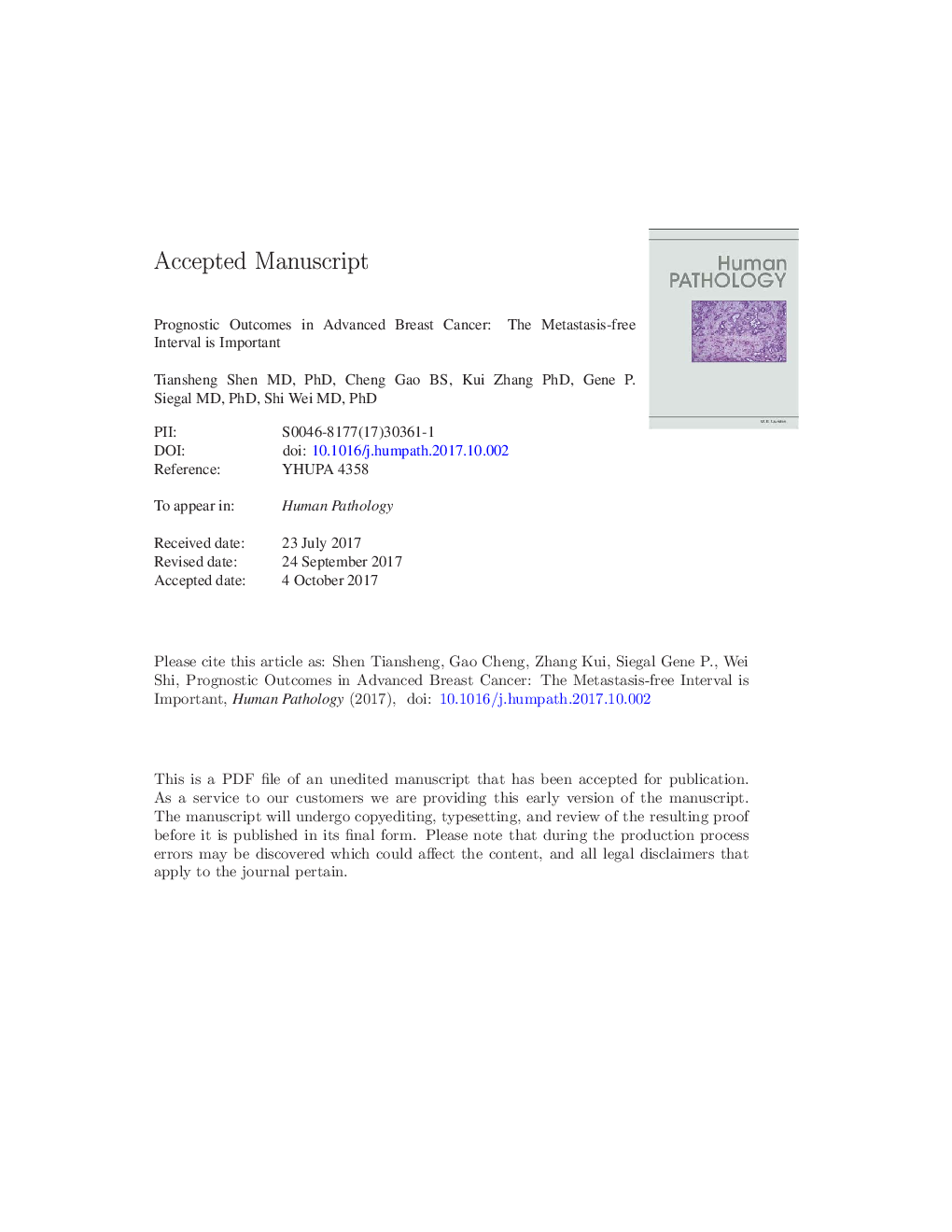| Article ID | Journal | Published Year | Pages | File Type |
|---|---|---|---|---|
| 8807711 | Human Pathology | 2017 | 23 Pages |
Abstract
Metastatic breast cancer is a heterogeneous disease with a diverse clinical course. There have been limited studies regarding prognostic outcomes in patients with de novo metastatic breast cancer versus those with metastatic recurrence, with controversial observations. In this study, we sought to examine the difference in survival outcomes among patients with advanced breast cancer stratified based on metastasis-free interval (MFI) and to further explore the role of systemic therapy in these patient groups. Of 569 consecutive patients with stage IV breast cancer between 1998 and 2013, 201 had de novo metastatic disease (metastasis at diagnosis) and 368 developed metastatic recurrence, including 168 with an MFI â¤Â 24 months and 200 with an MFI > 24 months. In the 492 patients who received systemic therapy, de novo metastasis was an independent favorable prognostic factor for overall survival after metastasis when compared with metastatic recurrence irrespective of MFI. Compared with the patients with metastatic recurrence with an MFI â¤Â 24 months, those with an MFI > 24 months had a superior survival outcome, although it did not reach statistical significance by multivariate analysis. In contrast, de novo metastatic breast cancer was associated with a worse prognosis when compared with recurring metastasis in the patients who did not receive systemic treatment. These findings provide more insight into the natural history of advanced breast cancer, thus necessitating further investigation into the molecular mechanism of drug resistance.
Related Topics
Health Sciences
Medicine and Dentistry
Pathology and Medical Technology
Authors
Tiansheng MD, PhD, Cheng BS, Kui PhD, Gene P. MD, PhD, Shi MD, PhD,
